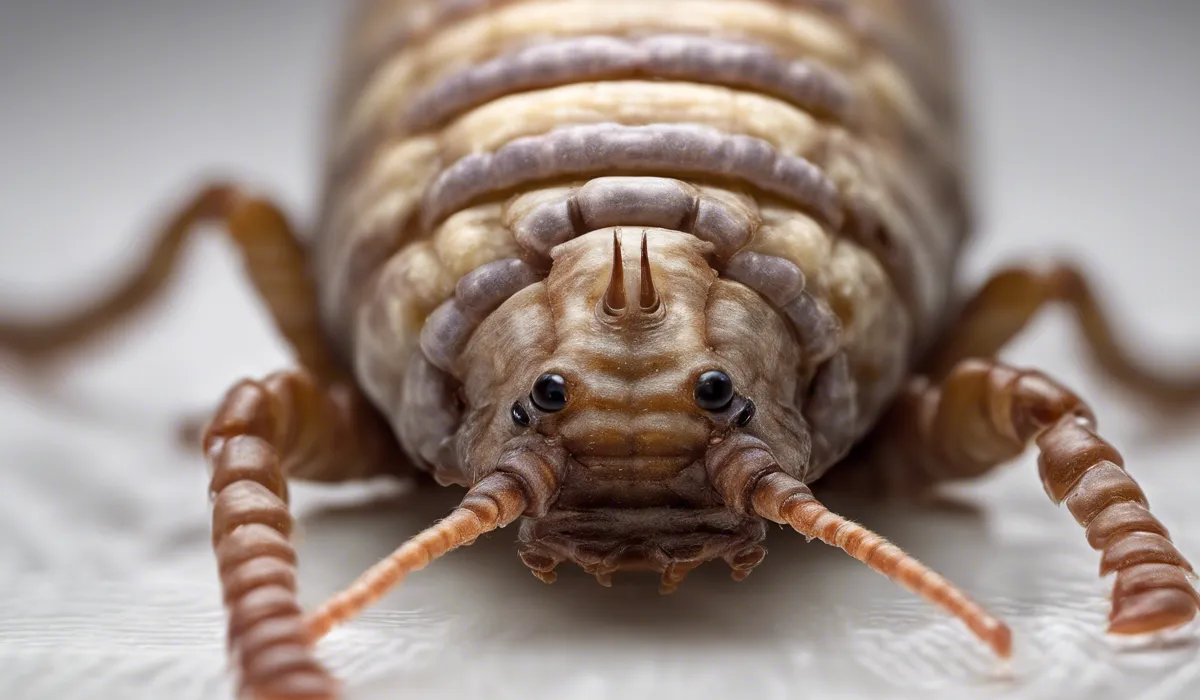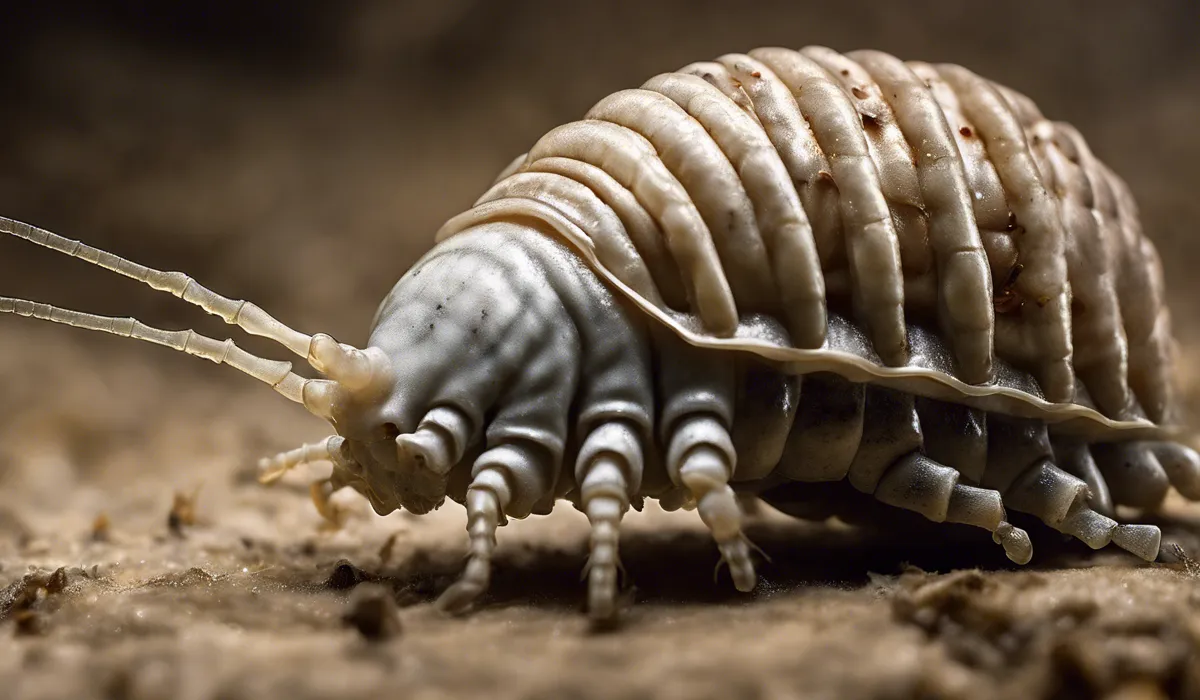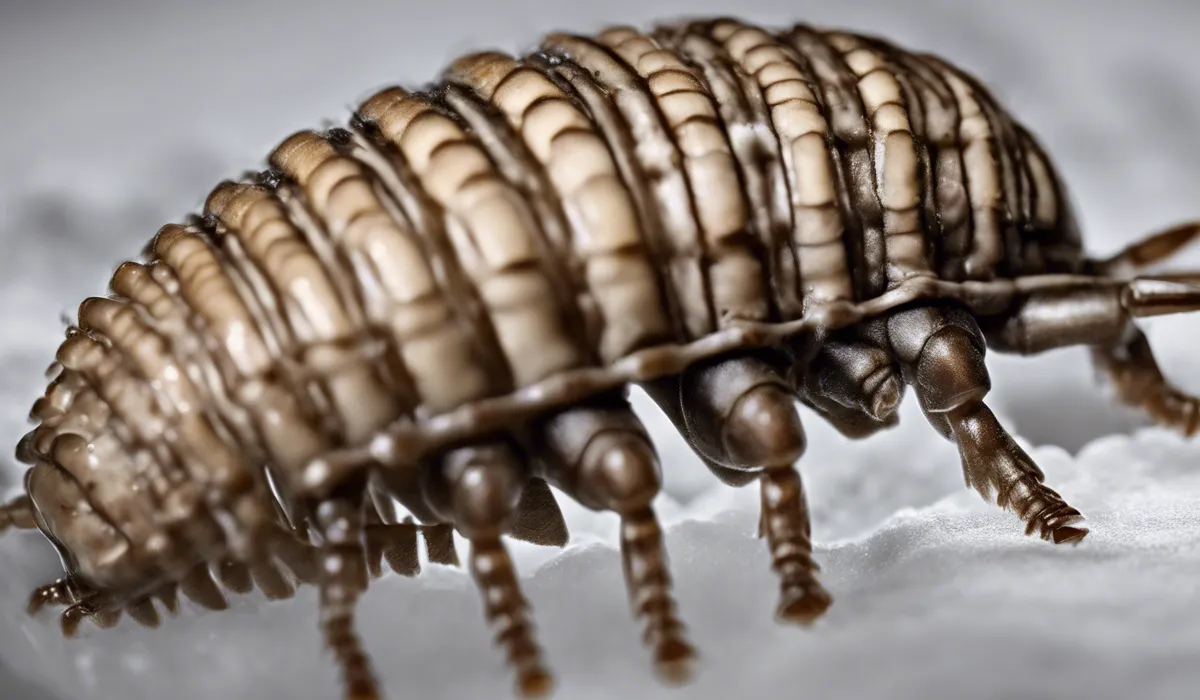Yes, isopods do eat mold. They are detritivores, consuming decomposing plant matter and fungi, including mold. This diet helps in nutrient recycling in their ecosystems. Mold is part of their natural food source.
Isopod Dietary Habits

Understanding Isopods
Isopods are fascinating creatures that inhabit various environments on our planet. These small, segmented animals can be found scurrying across the forest floor or gliding through the water in both marine and freshwater ecosystems.
Isopods come in many shapes and sizes, with some adapted to life on land, known as terrestrial isopods, and others thriving in aquatic settings, known as aquatic isopods.
Their hard exoskeletons protect them from the elements and predators as they go about their daily activities.
What Isopods Eat?
Isopods are not picky eaters. In fact, they play a crucial role in their ecosystems as detritivores, which means they feed on dead and decaying matter. Their diet primarily includes decaying leaves, wood, and other plant debris.
However, they also munch on smaller dead animals or fecal matter, making them important cleaners of their habitats.
By breaking down this organic matter, they help in recycling nutrients back into the soil, which promotes plant growth and maintains the health of the ecosystem.
Importance of Decomposing Matter
Without isopods and other decomposers, the natural world would be overwhelmed with the accumulation of dead plant and animal matter.
Isopods help to break down this material, making nutrients available to other organisms in the food chain.
Their role is so important that they are considered one of nature’s recyclers. As they consume decomposing organic matter, they also aerate the soil, which is beneficial for plant roots and other soil-dwelling organisms.
Fungi and Mold as Food
Mold and fungi are also on the menu for isopods. These organisms often grow on and assist in the breakdown of organic matter, making them a natural part of an isopod’s diet.
Consuming fungi, including mold, provides isopods with a variety of essential nutrients. While it might seem unusual, mold is a valuable food source for these creatures, contributing to their survival and well-being.
Role of Mold in an Isopod’s Diet

Mold’s Ecological Function
Mold is often seen as a nuisance in human dwellings, but in nature, it serves a vital purpose.
Mold is a type of fungus that breaks down dead organic matter, making it an integral part of the decomposition process.
This breakdown is essential for the recycling of nutrients in ecosystems, and mold plays a key role in this natural cycle.
Isopods’ Role in Decomposition
Isopods are one of the many organisms that contribute to the breakdown of organic materials.
By consuming mold and other decomposing matter, they speed up the process of decomposition. Their feeding activity helps to fragment the material, increasing the surface area for microbes to work on and thus accelerating the recycling of nutrients.
Isopods Feasting on Mold
Isopods do not shy away from mold. In their quest for food, they actively consume mold growing on decaying organic materials.
Mold provides them with a rich source of nutrients such as carbohydrates, proteins, and vitamins. By digesting mold, isopods are able to extract these essential nutrients for their growth and survival.
Nutritional Benefits of Mold
Mold is more than just a decomposer; it’s a nutrient-rich food for isopods. The enzymes in mold help isopods digest cellulose and lignin, which are tough components of plant matter.
This not only supports the isopods’ dietary needs but also contributes to their overall health and vitality.
Variety Among Isopod Species
Not all isopods have the same appetite for mold. Some species may prefer certain types of mold or fungi, while others are less selective.
This diversity in dietary preferences ensures that different isopod species can coexist by utilizing different resources within the same environment.
Observing Mold Consumption in Isopods

Creating a Controlled Environment
To better understand how isopods interact with mold, scientists sometimes observe them in a controlled environment.
This involves setting up terrariums or similar enclosures that replicate natural conditions while allowing for close monitoring of the isopods’ eating habits.
By controlling other variables, researchers can focus specifically on the relationship between isopods and mold.
Types of Mold Isopods Eat
In these controlled settings, isopods have been observed consuming a variety of mold species. Some of the molds they eat include those that are common on decaying wood and leaf litter.
By identifying the types of mold isopods prefer, researchers can gain insights into their dietary needs and preferences.
Behavioral Patterns Around Mold
Isopods display interesting behaviors when presented with mold. They may be attracted to certain molds by the scent or by the presence of other isopods already feeding.
Observing these behaviors helps scientists understand how isopods locate and select their food sources in the wild.
Impact on Health and Reproduction
The consumption of mold can have a positive impact on isopod health and reproduction. A diet that includes mold can lead to better growth rates and higher reproductive success.
By studying these effects, researchers can make inferences about the importance of mold in isopod populations.
Isopods in Mold-Rich Environments
In environments where mold is abundant, isopod populations may thrive. The ample food supply can support larger populations or a greater diversity of species.
This abundance can have a cascading effect on the ecosystem, influencing everything from the rate of decomposition to the soil quality.
FAQs About Isopods Eating Mold
Do isopods consume mold as part of their diet?
Yes, isopods do consume mold as it is a component of their natural diet which consists of decomposing plant matter and fungi.
Are isopods beneficial for controlling mold growth?
Isopods can help in controlling mold growth by consuming it, thus playing a role in nutrient recycling within their ecosystems.
Can isopods survive on mold alone?
While isopods can eat mold, they typically require a varied diet of decomposing plant matter and fungi for optimal health.
What type of mold do isopods eat?
Isopods are not selective and will eat various types of mold as part of their detritivorous diet.
How important is mold in the diet of isopods?
Mold is an important food source for isopods as it is part of the decomposing organic matter they help to recycle in their ecosystems.
Final Thoughts
Isopods, as detritivores, play an essential role in ecosystems by consuming decomposing organic matter, which includes plant material and fungi such as mold.
Their dietary habits contribute to the process of nutrient recycling, with mold constituting a natural component of their diet.
